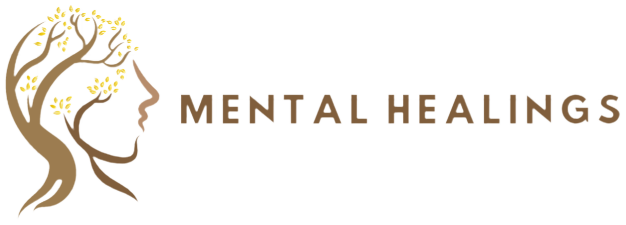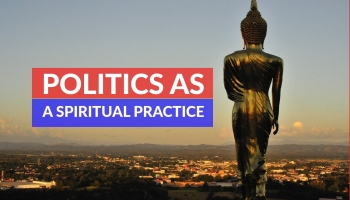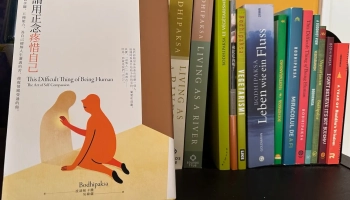
[ad_1]

One of the things that struck me as odd when I first encountered the Buddha’s teachings was the terms he used when he discussed living ethically or morally: “skillful” (kusala) and “unskillful” (akusala).
Maybe these terms are new to you. Or maybe they’re so familiar that you’ve stopped thinking about them. Either way, they are an unusual way to talk about morality.
The most common terms for describing ethical actions are good and bad, right and wrong, and good and evil. These are the terms most of us grew up hearing.
It’s not that the Buddha never used that kind language. Particularly when he was composing poetry, or when he was speaking to uneducated people, he’d use the word puñña, which means merit or “good,” and pāpa, which means bad or evil.
See also
But when he was talking technically, to serious Dharma practitioners — monks, nuns, and those householders who were dedicated disciples — he used these words “skillful” and “unskillful.”
No one can know for sure why Buddha chose those terms, but what might he have had in mind?
What is Skill?
So let’s think about what skill is. What does it mean to do something in a skilled way?
My understanding is that if you have skill you’re able to achieve something challenging that you set out to do. That’s the definition of being skilled.
So a skilled carpenter has the idea they’re going to make, say, a beautiful coffee table. And lo and behold, a beautiful coffee table appears. They have the skill to be able to create it. A skilled potter, wants to make a particular kind of pot. And because they’ve done a lot of practice, because they know what they’re doing, they’re able to make that kind of pot. They have the skill to accomplish what they set out to do. A person who lacks skill cannot do that. So that’s what it means to be skilled, or unskilled.
Skillful and Unskillful As Ethical Terms
Now, the Buddha used these terms, skilled and unskilled, in an ethical sense.
What does it mean to have skill in an ethical sense? Well, ethics is a part of practice. The Buddha talked about “the threefold training” which comprised ethics, meditation, and wisdom. These are three things we train in. Training itself is about developing skill, so there’s a consistent theme here.
What are we training for when we do spiritual practice? What is the point of practice? The point of practice is to have better lives, and to help other people to have that experience as well. It’s to liberate ourselves from suffering. It’s to become happier, more content, more fulfilled, and to have more of a sense of meaning in our lives.
Ethics Is Not About Being Good
It might sound deeply contradictory to say that ethics is not about being good, but I think that’s a faith claim to make about ethics in Buddhism. The Buddha didn’t tell us to abandon greed, hatred, and delusion because they are evil, but because they cause suffering. He said that if they didn’t cause suffering, then he wouldn’t tell us to abandon them:
If giving up the unskillful led to harm and suffering, I would not say: ‘Give up the unskillful.’ But giving up the unskillful leads to welfare and happiness, so I say: ‘Give up the unskillful.’ (AN 2.19)
Skillful and Unskillful Qualities and Actions
Just as a carpenter shows skill when they intend to create a beautiful piece of furniture and are successful, so we’re ethically skillful when we have the aim of living in ways that free us from suffering and that help others be free from suffering, and are successful in accomplishing that aim.
We’re unskillful when we aim to be free from suffering but end up creating pain and confusion.
The thoughts, words, and actions that free us from suffering are skillful. Those that do the opposite are unskillful.
When the Buddha talked about ethics he pointed out that there were two trends in the mind. (See MN 19) The mind can act based on selfish craving, hatred, or a lack of understanding. And those things will lead to suffering. He called these “unskillful.”
The other trend is that the mind acts with mindfulness and exhibits qualities such as patience, courage, kindness, empathy, compassion, appreciation, and so on. These are things that free us from suffering and bring peace and happiness. He called these ethical qualities “skillful.”
So we’re acting skillfully when we’re exercising skillful qualities — that is, qualities that help us move closer to the goal of freeing ourselves from suffering. We’re acting unskillfully when we’re in the grip of unskillful states of mind that create suffering.
So this is what I think the Buddha perhaps had in mind when he was using these terms — skillful and unskillful — which seem, at first glance quite unusual.
Why This Matters
It’s an interesting shift of perspective to think about ethics in terms of skill. It’s quite different from how we might have been raised to see things. We may have been raised to see things in terms of good and bad.
We get caught up in the idea of people themselves being good and bad. But it’s only actions that can be skillful or unskillful. You can’t talk about an unskillful person because no person is entirely skillful or unskillful.
Lots of people think of themselves as being good or bad. They want to present themselves to themselves as being good, which I’ve described elsewhere as a disastrous move. And of course lots of people become convinced that they are bad, or unworthy, and usually they’re sadly mistaken. You may be one of those people, or you probably know some of them. And your impression of them is probably that they are lovely people with many fine qualities. They’re probably kind and thoughtful, and you probably benefit from being with them.
We’re all a mixture of skillful and unskillful qualities. No one is all one or all the other. And spiritual training — or at least a lot of spiritual training — is about, on the one hand, exercising and strengthening the skillful, and on the other hand recognizing and letting go of the unskillful.
Life Is Practice
And this is for me the most important implication of the Buddha’s language of ethics as a skill. Skills are to be practiced and refined. Life — our ordinary everyday actions, and even our thoughts — is where we train. Our mistakes — the times we make ourselves or others suffer — is how we learn.
We can include in our lives constant reflections: did my actions lead to suffering? How could I do this differently in the future? Is what I’m doing or saying now leading to suffering? How can I change what I’m doing? Is this thing I intend to do or say or think likely, based on my past experience, to create unnecessary suffering? How might I act differently? (See MN 61)
Our lives are lessons to be learned. As long as we keep learning from our ethical mistakes, those mistakes are useful ones, because they bring us closer to our goal of living with peace, joy, and meaning.
[ad_2]
Source link






